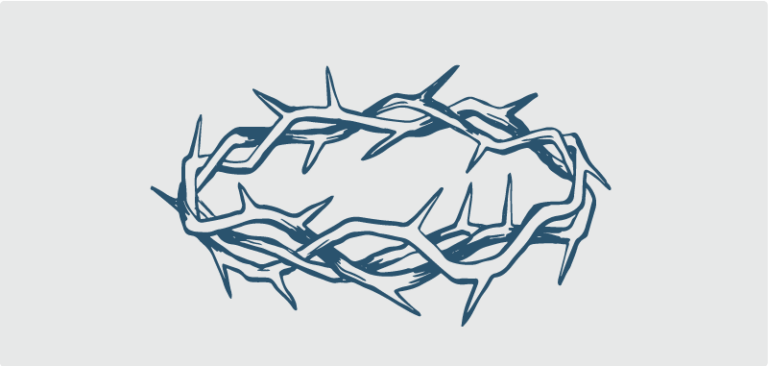What Is Salvation?
Salvation, One Sacrifice & Mediator, Union with Christ
What is Reformed Theology?
– Part Three
So far, you have read a lot about how the Reformers proclaimed and reaffirmed the authority of Scripture over all of life. This is especially true for the doctrine of salvation. In theological terms, this is sometimes referred to as the doctrine of soteriology, but it means the same thing.
What is the doctrine of salvation? Simply put, it is the teaching that explains how a man can be saved. In the Reformed Faith, particularly, the teaching explains how an unrighteous man can be accepted by a righteous God. In part three of this series, we will be walking you through the key tenets of the Reformed view of salvation.
Salvation is Outside of You
The Reformers in the 1500s battled a church that taught that man could earn his salvation. It taught that in some way salvation came from inside of you.
We’ve already talked about the purchasing of indulgences, and while Roman Catholic teaching on salvation is complex and has changed over the centuries, at the time of the Reformation the Roman Church taught that a person could buy salvation through money and good works. The Reformers directly challenged this. They instead taught that salvation was outside of the individual. That God orders salvation from beginning to end through His son Jesus Christ. The Westminster Confession of Faith helpfully puts it:
“The Lord Jesus, by his perfect obedience and sacrifice of himself, which he through the eternal Spirit once offered up unto God, hath fully satisfied the justice of his Father, and purchased not only reconciliation but an everlasting inheritance in the kingdom of heaven, for all those whom the Father hath given unto him,” (WCF Chapter 8, Section 5).
Christ secures our salvation apart from anything we do. How wonderful it is to know that we cannot save ourselves.
Think about this apart from the Reformed/Roman Catholic dispute. We live in a world today where people are constantly trying to prove themselves. People are hustling for the biggest paycheck, for success in the eyes of their peers, for fulfillment in a relationship, for joy in their activities, etc. They search for ‘salvation’ by making themselves feel better with anything they can find and it’s exhausting. As Christians, we do not have to worry about any of that because salvation is outside of us. Christ lived and died so that we could rest in Him.
No One Can Earn Salvation
In part two, we talked a little bit about Calvin’s doctrines of grace (you can review that here). Borrowing from him, we recall that we cannot do anything to earn salvation. There are no corporate ladders to heaven. We cannot earn salvation because we are sinful to our cores. The Scriptures teach that all people have sinned and that no one can truly do good on his or her own. We do not deserve to be saved. Yet, even though we are sinful, God still freely gives us the means to love Him. We love Him because he first loved us (1 John 4:19).
God chooses us. He adopts us as His own children. He causes us to trust Him. He justifies us (meaning He gets rid of our record of wrongs). God continues to work in us. He sanctifies us (meaning He grows us in godliness every day). And He will keep us in His church with other Christians until the day that we will reign with Christ for eternity. He does it all. We merit nothing.
Only One Sacrifice
But God hates sin and cannot leave it unpunished. In the Reformed Faith, there is a theological term called ‘penal substitutionary atonement.’ This simply refers to God—in both His justice and mercy–sending His son Jesus to die in our stead. It is “penal” because Christ bears a “legal” punishment for sin (Col. 2:14). It is substitutionary because Christ bears that punishment as our representative (1 Peter 2:24, 1 John 4:10). He takes our sins as His own and gives to us His own righteous deeds as if they were our own. Now we can be presented as righteous men and women before a righteous God.
Think back to the Old Testament sacrifices. In the books of the Law, God tells the people of Israel how they are to bring sacrifices before Him for the cleansing of their sins. He required the shedding of blood for forgiveness. Leviticus 16 particularly describes the day of atonement. This is when the High Priest of Israel would enter into the presence of God and present a lamb (among other things) as a bloody sacrifice for all the sins of all the people. The blood of the lamb would be shed as the representation of the people and the people would receive forgiveness. This was a shadowy picture of what Christ now does for us. The Scriptures teach us that Jesus is all at once our sacrificial lamb and our High Priest (Hebrews 4:14-16, 10:14). That Jesus once and for all saved us from our sins through His death on the cross.
The Roman Church taught that Christ had to be repeatedly sacrificed at the Mass for the cleansing of sins. Today’s culture tells us that we have to constantly “do better” and work harder. The Reformed faith relieves us of all that pressure by pointing us to Scripture’s glorious teaching of the sufficiency of Christ’s death to cover all our sins, faults, pains, and anxieties. Christ is enough.
Only One Mediator
The Scriptures teach that there is only one mediator between us and God, Our Lord Jesus Christ. Here again, the Westminster Confession is helpful in its clarity:
“The Son of God, the second person in the Trinity, being very and eternal God, of one substance, and equal with the Father, did, when the fulness of time was come, take upon him man’s nature, with all the essential properties and common infirmities thereof, yet without sin: being conceived by the power of the Holy Ghost in the womb of the Virgin Mary, of her substance. So that two whole, perfect, and distinct natures, the Godhead and the manhood, were inseparably joined together in one person, without conversion, composition, or confusion. Which person is very God and very man, yet one Christ, the only mediator between God and man,” (WCF Chapter 8, Section 2).
Because Christ is both God and man, He is the only person that can provide us access to God. No other person can do that. The Roman Church taught that God could be accessed by praying through the Virgin Mary or through the saints. This is an unbiblical teaching. No saint, no Christian, no historical person can fill the role of mediator—only Jesus. While God has given us many examples of Godly men and women that we can imitate and learn from, we cannot look to any other person for salvation or access to Him. In Christ’s name alone do we pray. Christ is all and all.
Union with Christ
Perhaps one of the greatest emphases of the Reformed Doctrine of soteriology is our union with Christ. We enjoy all the benefits of salvation by being united to Jesus Christ through the Holy Spirit in baptism and in communion with other Christians. The Scriptures teach that God saves us by linking us experientially with the death and resurrection of His son (Romans 6:3-7, 2 Corinthians 5:17, Galatians 3:27). We died with Him and put away our old sinful selves. We resurrected with Him and became a new man. Calvin writes:
“We must understand that as long as Christ remains outside of us, and we are separated from him, all that he has suffered and done for the salvation of the human race remains useless and of no value for us. Therefore, to share with us what he has received from the Father, he had to become ours and to dwell within us,” (Calvin, Institutes 3.1).
Jesus didn’t just pay for the bad things we have done and will do. He didn’t just solve symptoms. He went to the heart of it all. He got into our skin so that we could get into His and truly be changed at the core. He took on flesh so that we could have a “heart of flesh.” We are eligible for His inheritance because He made us His own. The Scriptures tell us that He is the head and we as Christians are His body. We are inseparably united to Him and are saved by being in relationship with Him.
Conclusion
God in His grace and mercy saved us and sustains us every day by the work of Christ through the power of the Spirit. This should animate us to love and serve Him. We should look to our one sacrifice, our one mediator, and our head as an example of the life we should now live. As the Scriptures teach, “If ye then be risen with Christ, seek those things which are above, where Christ sitteth on the right hand of God. Set your affection on things above, not on things on the earth,” (Col. 3:1-2).



